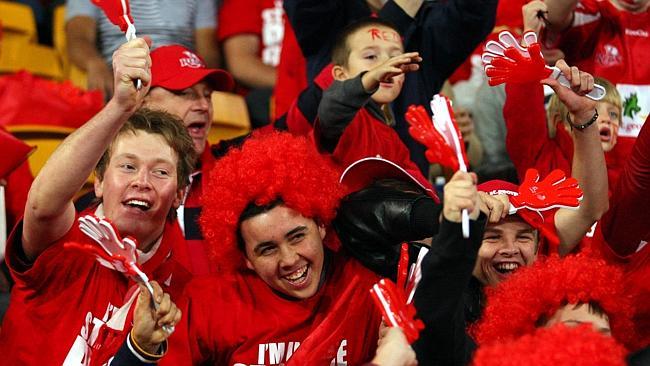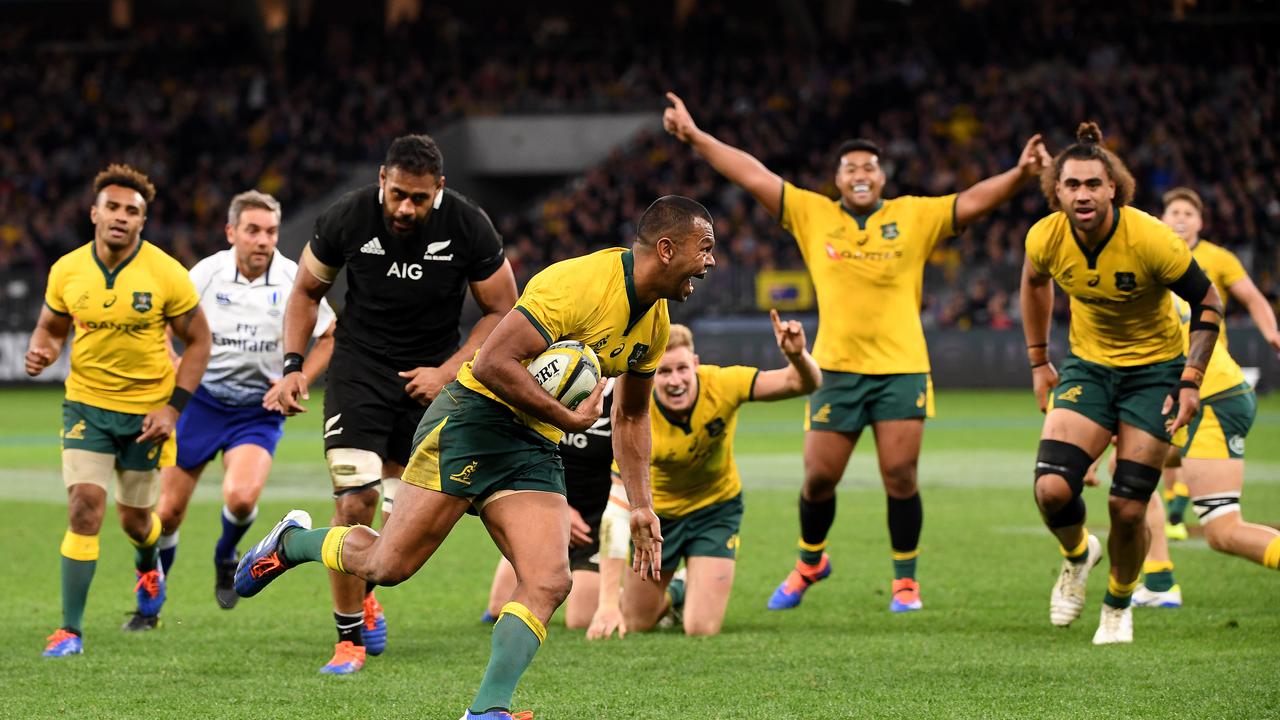Andrew Slack:
FOR all the good ideas that we all think would make for a better Super Rugby competition, the only thing that matters is economics, writes Andrew Slack.

Opinion
Don't miss out on the headlines from Opinion. Followed categories will be added to My News.
FOR all the good ideas, practical solutions, idealistic notions and selfish concepts that we all think would make for a better Super Rugby competition, the only thing that matters is economics.
Economics, and for that you may as well read broadcast money, is the only determining factor that will get the decision-makers nodding in agreement.
With a poofteenth of an eye focused on the future, and the rest of their vision on a bank account that does not make them nervous, CEOs are beholden to a healthy bottom line.
That’s fair enough. Indeed the business of sport demands it, and however legitimate our romantic grand schemes and dreams appear, if the outgoings are high and the incomings are low, dreams are all they will be.
So, does the exciting new world of Super Rugby post-2015 offer the follower something to look forward to?
Perhaps.
If the bucks are there, it will engender some interest because it will be new and fresh, and that always gets our hopes up. However, expansion brings with it responsibilities, the first of which is entertainment.
Australian rugby is in a uniquely difficult position thanks to our footballing competition. It’s all very well to suggest, as some commentators have, that the code’s disciples will love the expanded competition.
But for the game to prosper, it needs to attract more than just the nailed-on rugby fan.
It must capture the imagination of the casual watcher, and only the most biased rugby person would believe that has been the case in Australia over the past couple of years.
Subtract the Reds’ stellar 2011 season and “pedestrian” might be the appropriate word for too much of the rest of the fare on offer in recent seasons.
So often I hear casual sports lovers bagging rugby. They are not always right, but perception has an attachment to reality and many of the fans the code needs to engage are looking to other pastures.
I have lifelong rugby friends who are devoted to the game, but every week they criticise the way it is being played.
They will support it until they do actually get to find out if it is played in heaven, but you would wish that factors other than obligation and loyalty kept them connected.
I know nothing about business, but if you are going to expand the firm, you have to expand the number of people you can deal the goods to.
New Zealand and South Africa can go blithely on, because the devoted fans who are the minority here are the majority there. They will watch anything going under the heading of rugby.
Nobody can afford to be overly complacent but expand east, west, north or south, and rugby will still be a powerful force in those two countries.
In Australia, that ain’t necessarily so.
All of this underlines how important the new National Rugby Championship is here. The NRC brings with it a liberating independence from ruling bodies outside our borders.
Without the need for extensive fiddling, the freedom to tinker with laws so as to produce the style of game a fussy Australian audience hankers for can provide evidence to the sceptics that the 15-man game has much to offer.
There will not be major ratings or capacity crowds, but by proving that rugby was never meant to be a stodgy, stop-start affair, the news can spread.
From little things, big things grow. A well-constructed NRC may earn new fans and also impress administrators in the distant offices of power.
The NRC will be only loose change compared to the multimillion-dollar enterprise of Super Rugby, but on an economy of scale, it has the potential to be a bonanza.


